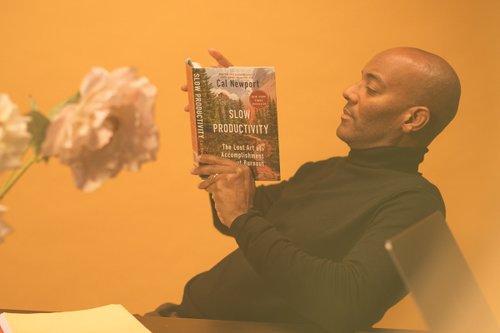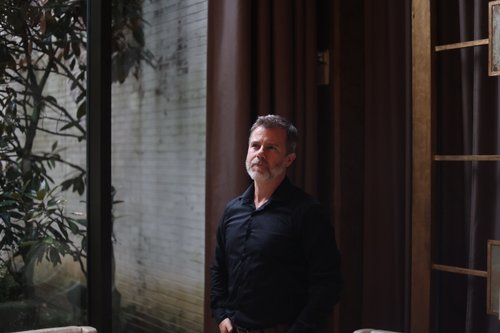The youth have spoken: South Korea’s push for a four-day workweek
26 dic 2024
5 min


Journalist
It took South Korea decades to achieve its current level of success but it is thriving. The unemployment rate is low and incomes are up. It has claimed success at the Academy Awards for the film Parasite and produced one of Netflix’s best-selling series in Squid Game.
However, being an economic powerhouse has come at a cost. In 2014, the Korea Times reported that 85% of workers were affected by burnout because they worked 10 hours a day or more. Those figures have since fallen, though they remain high.
Almost 70% of 72,000 office workers responding to a 2020 survey, particularly women, said they had experienced burnout in the previous 12 months, and the country still has some of the longest working hours of all the OECD countries. Death from overwork—gwarosa—is a phenomenon too.
Some South Korean companies have had a few runs at shortening the workweek—despite attempts to move in the opposite direction—but nothing so widespread as the recent move from Kim Dong-yeon, governor of the Gyeonggi Province, who is offering workers in more than 50 public and private companies the opportunity to work fewer hours for the same salary, in a move that the governor hopes will put the topic on the national agenda.
Will the trial mark a turning point in Korea’s work culture, kicking off a productivity revolution?
Addressing labor shortages with more working hours—or fewer working days?
This progress comes in response to the country’s recent and historic attempts to address labor shortages by lengthening the workday. In 2023, the government tried to increase the maximum workweek to 69 hours, up from 52 hours (40 hours plus up to 12 hours of overtime). However, a backlash from workers—mostly Millennials and Gen Z—forced the government to reconsider. The MZ generation, as young people are known in Korea, called it “an irresponsible and inhumane policy that is ignorant of reality.”
6 out of 10 Koreans say they would prefer a four-day workweek, according to a survey commissioned by Park Hong-bae, a former labor activist and member of the Democratic Party of Korea, who believes this is one international trend the country should follow. “Shortening working hours is not just a matter of reducing individual working hours, but it is the key to solving the challenges facing South Korea, such as low birth rate, sluggish domestic economy, industrial change, and climate crisis,” he said.
Dale Whelehan, CEO of 4 Day Week Global, which advocates for a shorter workweek as a way of achieving greater productivity and a better work-life balance for all, is hopeful that South Korea will listen to the younger generation and embrace what is becoming a trend worldwide. “It’s a fascinating case that underscores the tension many countries face between economic imperatives and the urgent need to address unsustainable work practices,” he says. “The government’s attempt to extend the workweek to 69 hours was a stark reminder of how ingrained long-hours culture is in some economies—and how deeply damaging it can be.”
Chris Oberman and his wife—who requested anonymity for privacy reasons—an expat couple from the Netherlands living in Seoul, have experienced this firsthand. “Korea is known for the tough workload employees have to deal with and many people work overtime,” says Oberman. “At night in Seoul, you’ll see many office lights still on!”
His wife adds: “Many Koreans work overtime even during lunch breaks. To address this, some companies have set up automatic locks on employees’ computers during lunch to ensure they don’t continue working.”
It is telling that the MZ generation, who grew up with greater wealth than their parents, are not willing to accept it, Whelehan says. “This younger generation is rejecting the trade-off their parents and grandparents were often forced to make: sacrificing wellbeing, health, and personal fulfillment for the sake of economic success,” he says. “They are making it clear that a thriving economy shouldn’t come at the expense of the people driving it.”
Oberman, as a millennial, agrees. “Experimenting with a four-day workweek could be a great way to improve work-life balance. We’ve actually seen this become more popular in Europe as well.”
Korea’s approach to the four-day workweek
For Whelehan, the key to using a four-day workweek to increase productivity is to adopt the 100:80:100 principle. For employees, this means getting 100% of the work done in 80% of the time and taking home 100% of the pay. So far, the Korean versions of a four-day workweek haven’t followed that formula, but some companies have been making moves toward greater flexibility.
In 2019, some SK Group affiliates introduced the idea of a Friday off once a month to make up for overtime. In 2023, Samsung introduced a policy to allow non-factory workers to work four days a week once a month—though it’s hard to see how that squares with its decision in April 2024 to ask executives to work six days a week to “inject a sense of crisis and make all-out efforts to overcome it,” according to a Samsung Group executive.
More recently, local governments in places such as Jeju and Chungnam have garnered headlines for offering a version of the four-day workweek. However, when you drill down into the details, these often involve four 10-hour days rather than five eight-hour days. The total number of hours worked remains the same, though the workers are being offered more flexibility and the chance to take a Friday off on a regular basis.
Since July 2024, Oberman’s wife has been working at a company that is experimenting with more flexible working conditions. “Employees can work from home one day a week, with a maximum of two days,” she says. “The goal is to see if this can improve flexibility and productivity.”
The Gyeonggi trial
Back in Gyeonggi province, which includes Seoul, the governor has high hopes that the trial will have far-reaching effects. “As time goes by, we live in a society where fewer and fewer people are working, and more and more people are not working,” says Gyeonggi governor Dong-yeon. “In order to make [the project] a national agenda, Gyeonggi is planning to implement it first.”
Their system is flexible. Workers can choose between a four-day workweek every fortnight, a 35-hour week, or take a half day every Friday.
“The pilot program in Gyeonggi Province signals a shift in thinking,” said Whelehan. “While modest in scale, it demonstrates that the government is willing to experiment with alternatives. If designed well, this trial could serve as a crucial data point showing that reduced working hours not only benefit workers but also improve productivity, engagement, and overall economic health.”
Time will tell how the Gyeonggi trial plays out, and how Korea as a whole answers the demands for better working conditions from the MZ generation. Whelehan notes that success will depend on how it’s implemented, measured, and communicated.
In the meantime, the rest of the world can watch and learn from the findings. In a recent report, the World Bank wrote: “Today Korea’s experience offers lessons for developing countries in sustainable development, provision of infrastructure and better services to improve the lives of the people, and how to transition to a dynamic knowledge economy.”
Photo: Chris Oberman for Welcome to the Jungle
Follow Welcome to the Jungle on Facebook, LinkedIn, and Instagram and subscribe to our newsletter to get our latest articles every week!

Más inspiración: Future of Work

The Bear: When professional passion turns toxic
Carmy's workplace trauma isn't unique...
31 dic 2024

Cal Newport's Slow Productivity: Redefining success in a hustle culture
Is slowing down the key to achieving more?
19 dic 2024

Wellbeing washing: Are workplace mental health apps doing more harm than good?
Workers are struggling with mental health. Are employers approaching it the right way?
19 dic 2024

Dark side of DINKs: Working as a childfree adult
Having children comes with challenges. So does choosing not to.
11 dic 2024

Debunking the American Dream with Benjamin C. Waterhouse
Has our economic past and the rise of gig work poisoned our ideas of success?
13 nov 2024

¿Estáis orgullosos de vuestra cultura empresarial?
Dadle la visibilidad que merece.
Más información sobre nuestras soluciones


